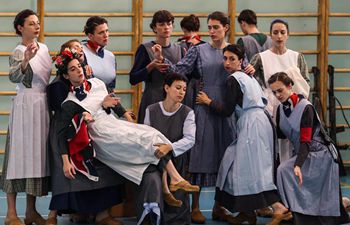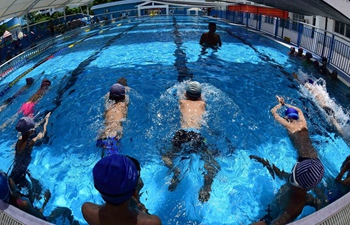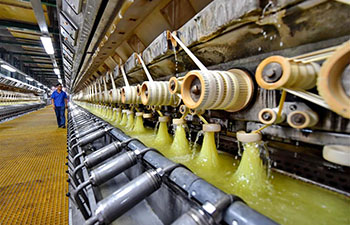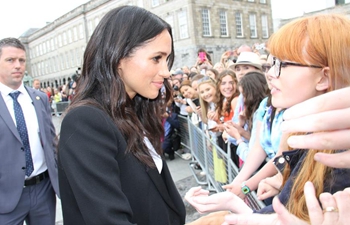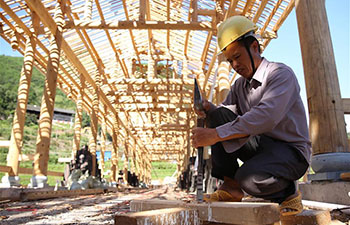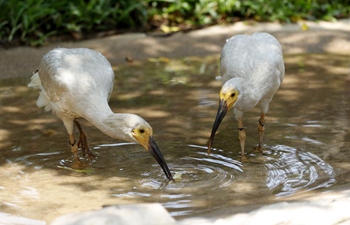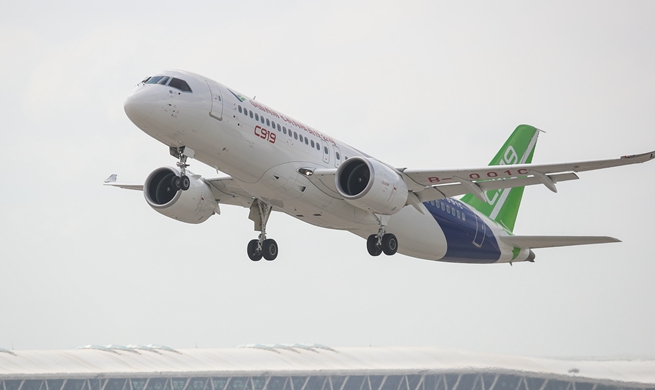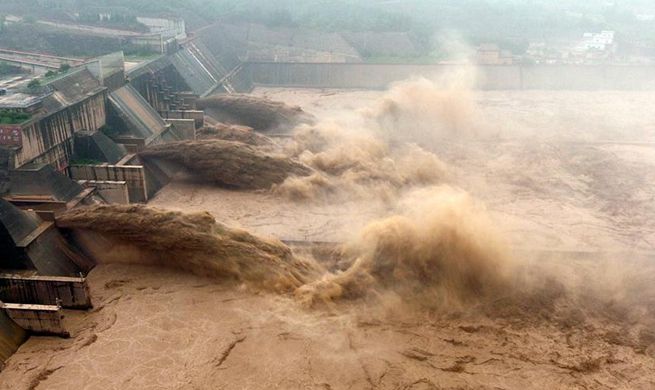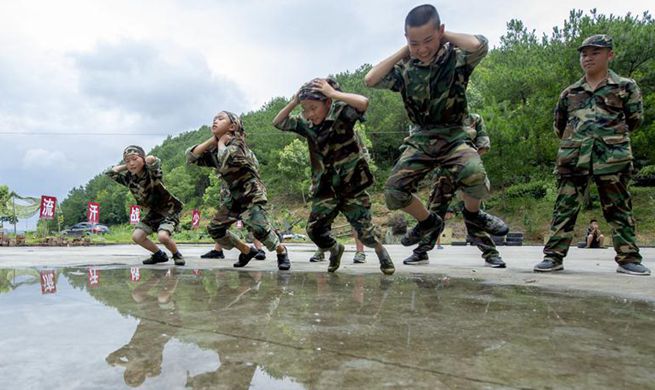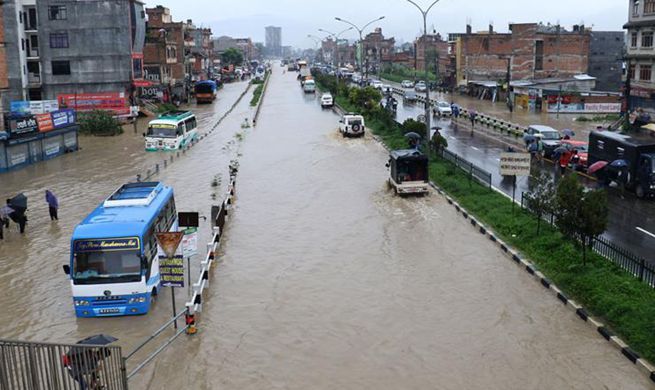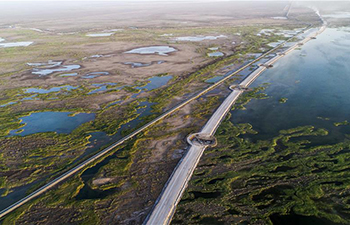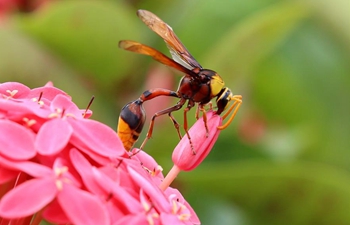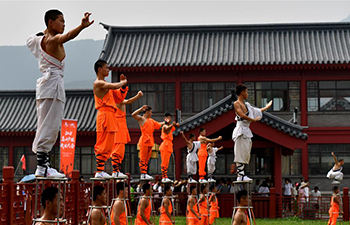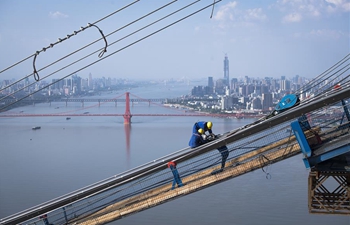by Alessandra Cardone
ROME, July 12 (Xinhua) -- An Italian coast guard vessel carrying 67 rescued migrants was allowed to dock at the Sicilian port of Trapani on Thursday, but not to disembark.
The ship waited since early Thursday morning for the permission to enter the port, while an investigation was being run on board against two of the rescued people.
The group of migrants had sailed from Libya earlier this week, and had first been rescued by commercial ship Vos Thalassa after launching a distress call in the central Mediterranean Sea on Monday.
They were transferred to Italy's coast guard vessel after two migrants allegedly launched threats against the freighter's crew if the ship was sailed back to Libya, according to state-run RAI News TV channel.
Before the transfer, the freighter had been denied permission to enter Italian ports by hard-line Interior Minister Matteo Salvini.
The two migrants -- one man from Ghana, and another from Sudan -- were put under investigation for threat, violence, and attempted seizure of a ship, according to Ansa news agency, citing police sources.
No charge has yet been laid against them. Prosecutors in Trapani were due to hold a meeting late on Thursday with the police from Rome running the investigation, before deciding on the issue.
While the decision on whether to allow migrant ships to enter Italian ports is up to the ministry of infrastructures, the choice to let migrants disembark is under the interior ministry's jurisdiction.
Speaking on the sidelines of a meeting on migration with his German and Austrian counterparts in Vienna on Thursday, Salvini said he would not allow the migrants to leave the ship until the presumed threats were cleared.
"I will not give any permission, because here someone is lying," he told a press conference that was broadcast on Facebook.
"Either it is the migrants (denying making threats), or those who denounced the violence and exaggerated the threats. In either case, if somebody has lied, they have to pay," Salvini said.
Overall, among the 67 migrants and asylum seekers, 58 are men, three are women, and six are children from various countries of origins including Sudan, Pakistan, Palestine, Bangladesh, Morocco, Ghana, and Chad.
